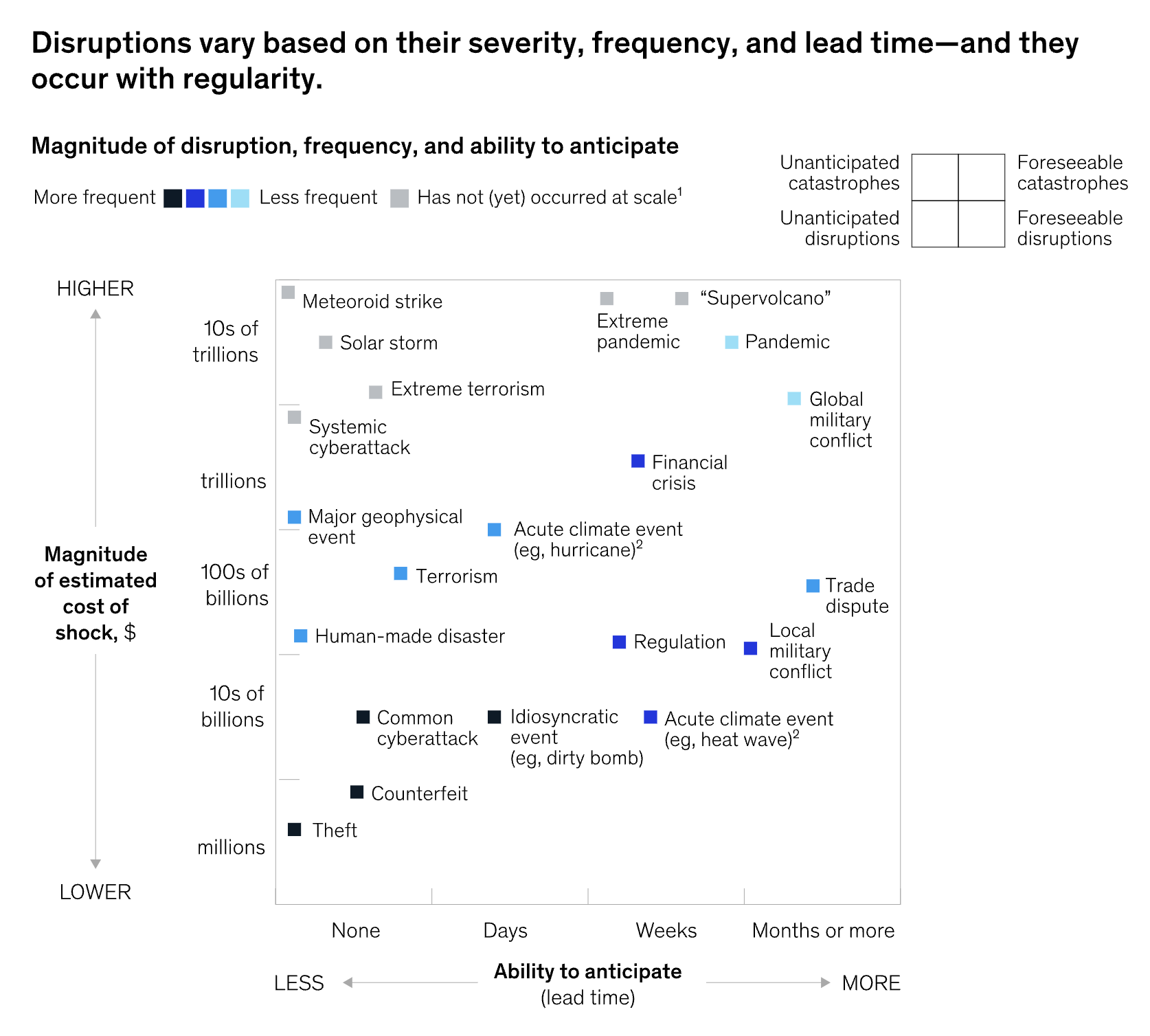Legal Fire Drills are Avoidable - Disasters are Not
Over a decade, the cost of disruptions can exceed 40% of 1 year's earnings. What if you had data before the next crisis, and could mitigate the risk & cost?
We often talk about the legal fire drills that occur when some new crisis strikes. Management wants to know what it means for the business, and legal scrambles to understand the extent to which supplier and customer contracts expose or shield the business. In most cases, people do their best to speed read documents and summarize their analysis, hoping not to miss anything big. In many cases, time is short, and the risk assessment is hazy.
But what if you could get ahead of things, and assess the risks before the next crisis? Where would you start?
McKinsey's work on supply chain disruptions is very helpful (yes, we're in love with McKinsey's charts right now). In particular, the chart below provides a handy framework for thinking about which questions to ask, and whether your contracts might contain useful provisions for mitigating the fallout from a range of disruptions and catastrophes. By plotting lead times, magnitude (in terms of cost), and frequency, it becomes much easier to prioritize which data might be the most useful to your business.

It turns out that, over the course of ten years, these disruptive events cost a typical company over 40% of one year's earnings. And you can expect a major disruption (lasting 1-2 months) every 3-4 years.
Cyberattacks, climate events, new regulations, military conflicts, and trade disputes already jump out as very foreseeable disruptions. All of these events would be easier to navigate (and substantially less costly) if you understood ahead of time how your contracts addressed the risks. What reporting obligations are triggered for us, or for our suppliers, when these events happen? If new taxes or sanctions are imposed, who bears the cost? Would force majeure cover us for non-performance, and if not, which deals leave us exposed? Would force majeure protect our suppliers, and if it drags on do we have the option to terminate and switch suppliers? Are there adequate insurance coverage commitments in place across our supply chain, and are we tracking compliance?
Catylex makes it possible to get answers to these and many other questions quickly, and before a crisis hits. It won't prevent the next crisis, but it will make it much less stressful and costly.